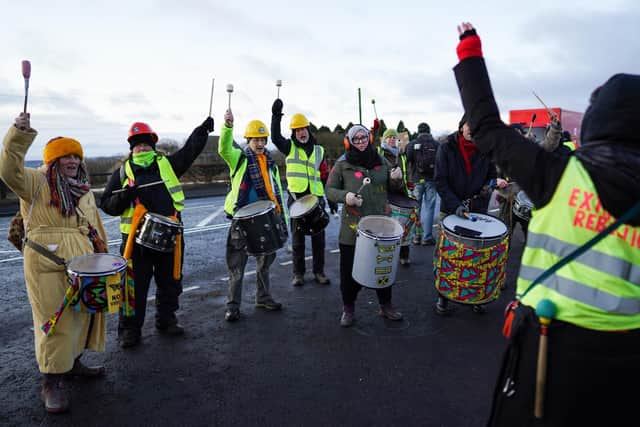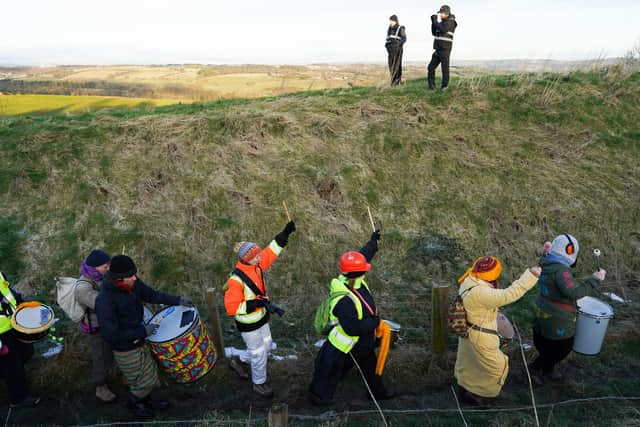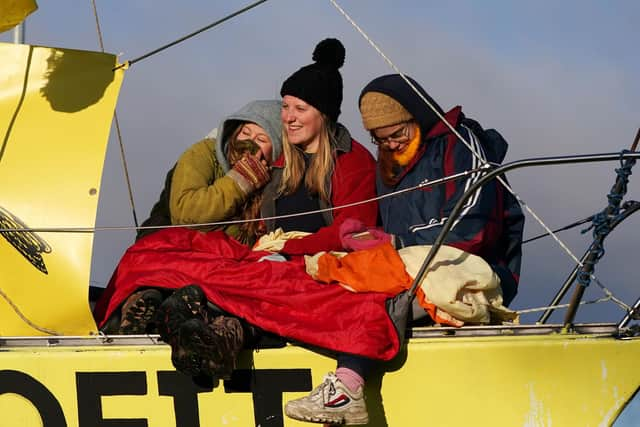Hartlepool student explains why she joined in Extinction Rebellion protest against open cast coal mine
and live on Freeview channel 276
Lauren Conway, 26, who comes from a family of coal miners, is part of a group of around 50 who have got on to the Banks Group's Bradley site near Consett in County Durham on Thursday, February 27.
They scaled fences despite the presence of security guards with dogs.
Advertisement
Hide AdAdvertisement
Hide AdLauren, who is originally from Barnsley and has moved to Hartlepool, said: “I am extremely proud of my heritage, and the century of struggle that fuelled the industrial revolution, workers’ rights and the welfare state.


“But I’m not sentimental to the point I would choose short-term profit, and short-term work over the long-term health of humanity.
“The proud history of struggle in mining communities was, in truth, not to keep digging coal. My granddads, and their granddads before them, hated it.
“Their struggle was instead for the livelihood of their communities, and the health of themselves and future generations.
“That struggle is continued by me today.”
Advertisement
Hide AdAdvertisement
Hide Ad

Extinction Rebellion campaigners blocked access to the site with some protesters dressed as canaries sitting in cages at the mine entrance.
Extraction at the site started in 2018 and the firm has applied for planning permission to extend the mine to extract a further 90,000 tonnes of coal and 20,000 tonnes of fire clay.
But Lauren, who is studying at Durham University to be a teacher, said it flies in the face of Government pledges to decommission all coal-powered power stations by 2025 and Prime Minister Boris Johnson vowing just last month not to spend ‘another penny of UK taxpayers’ money’ on coal-mining or coal-fuelled power plants in the developing world.
She added: “You don’t need to be a scientist to see that climate change is no longer something that is going to happen in the future – it’s being felt here, now.”
Advertisement
Hide AdAdvertisement
Hide Ad

The Banks mining company responded to the protests by saying coal is necessary for the steel and cement industries, and if it is not produced in Britain even more would be brought in from Australia or Russia.